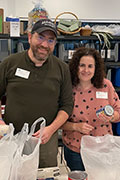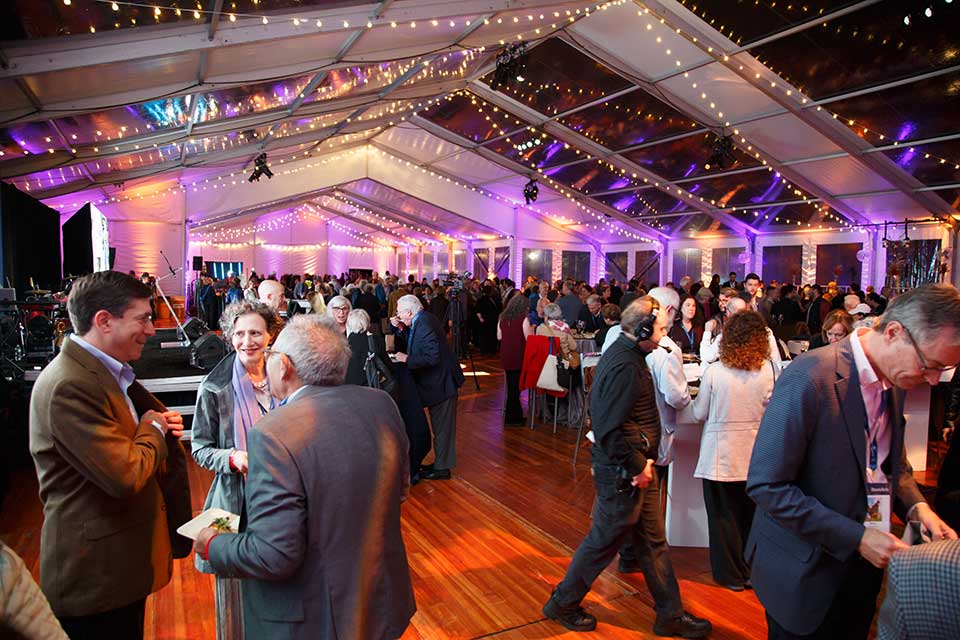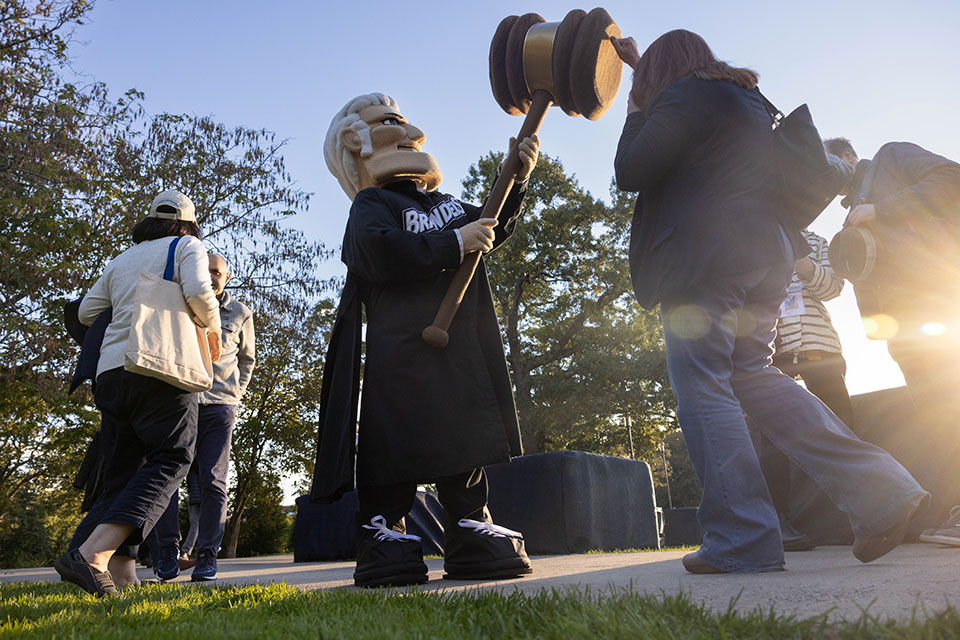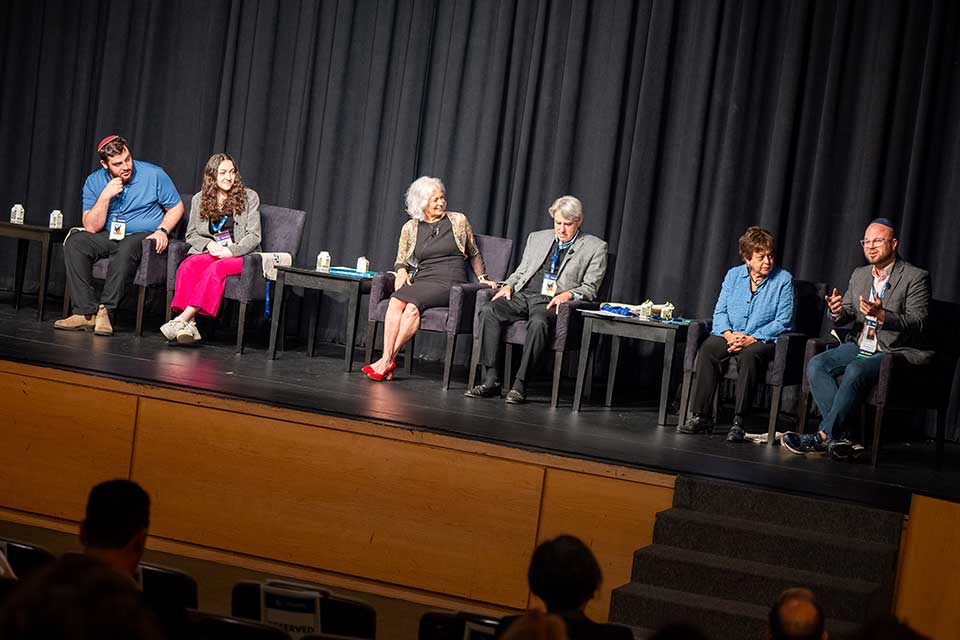Key lessons from alumni conversations with podcaster Guy Raz ’96
Alumni from a variety of fields shared how their Brandeis experiences shaped the trajectory of their lives and careers.
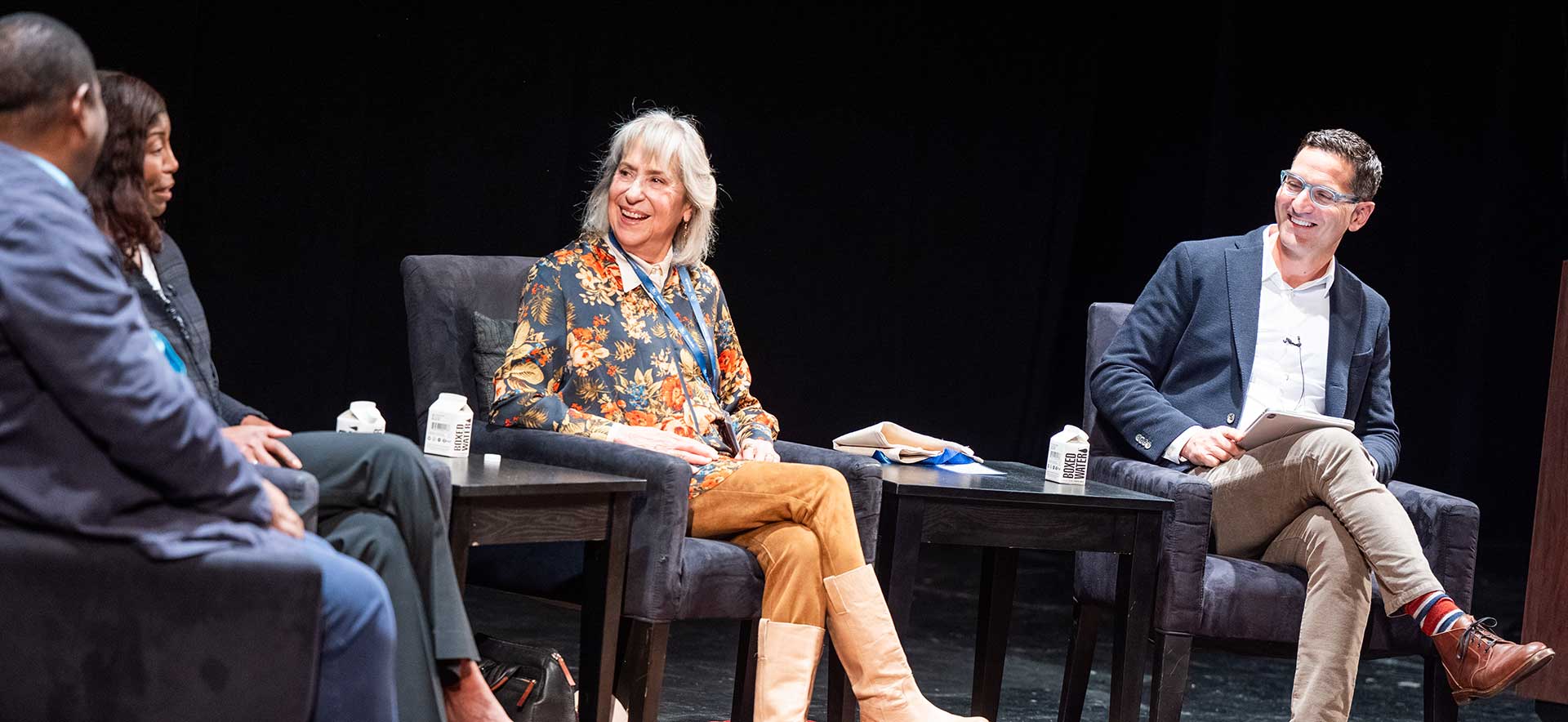
By David Marino
Photography by Ashley McCabe
October 23, 2023
During the 75th anniversary weekend, Guy Raz ’96, creator and host of the popular “How I Built This” podcast, hosted a series of conversations that played out like a live version of his show. Raz interviewed seven fellow Brandeis alumni who have made major contributions to the arts, sciences, and business.
Here are some of the key lessons from their Brandeis experiences they said helped shape their lives.
Trust and follow your passions
John-Andrew Morrison ’95 received a Tony nomination for his role in the Broadway hit, “A Strange Loop.” Yet when he arrived at Brandeis from Kingston, Jamaica, he didn’t go directly to the stage.
“I had to tell my parents I wanted to study law so they would let me go to school,” Morrison said. “That was how I was going to fly away.”
Theater had always captivated him, though, and when touring Brandeis’ campus, he was immediately impressed by Spingold Theater’s facilities.
“There was an amazing set on the stage, and I was like, ‘I want to be on that stage,’” Morrison said. “It just felt right. From all the places that I toured, this was the one where I kind of knew: I needed to come here.”
Physicist and television host Debbie Berebichez ’96 shared a similar story.
As a child in Mexico, she said her family discouraged her from pursuing the sciences, saying the field was “too masculine.” But she wouldn't be dissuaded and applied secretly to a number of American universities.
However, cost was a concern. “My parents couldn’t have afforded an American university, which was eight times the cost of a private one in Mexico,” she said. But a scholarship from Brandeis made her dream a reality. Berebichez shared how the selection committee lauded her “beautiful essay full of passion.”
“Brandeis completely changed my life,” Berebichez said. “I was extremely lucky.”
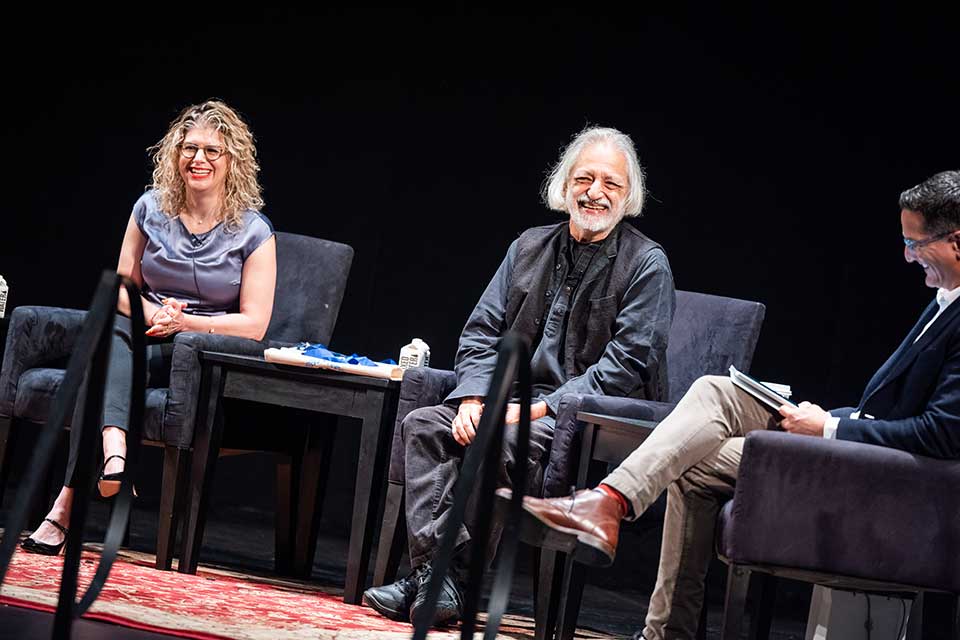
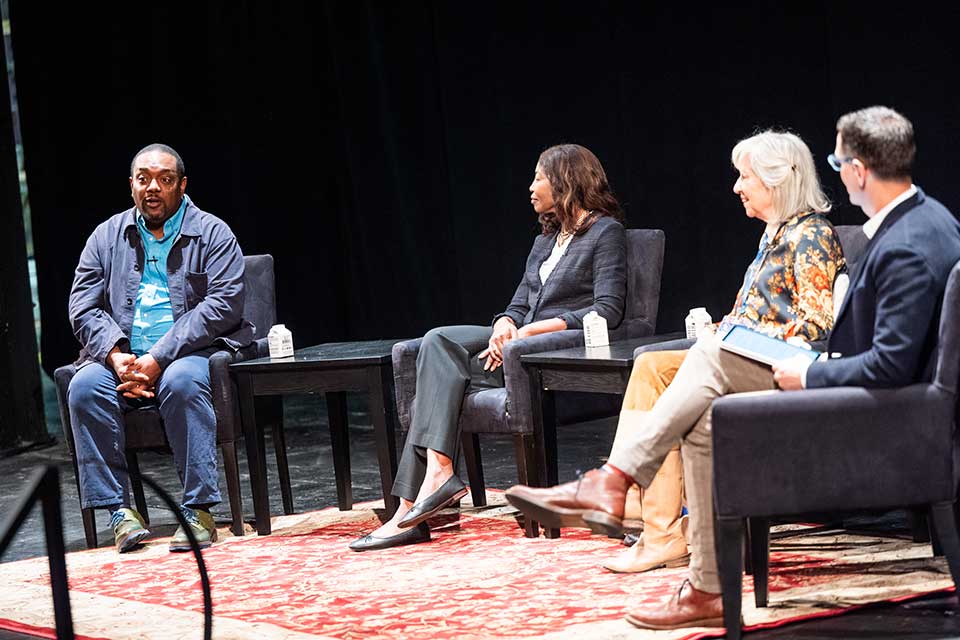
Your education stays with you in unexpected ways
As a student at Columbia Medical School, Art Caplan ’71 recalled finding himself in intense ethical debates with colleagues. Specifically, he remembered discussing how healthcare providers are supposed to make moral determinations about who receives certain treatments when necessary equipment is in short supply.
As he grappled with those questions, he says he thought back to his time at Brandeis and the ethical lessons he’d learned from philosophy professors like Alistair Mcintyre.
“I’m thinking about my Brandeis experience and saying ‘this isn’t fair’ or ‘this is unjust,’” Caplan said.
Caplan added that bioethics as a field is itself a combination of Brandeis’ moral philosophies mixed with scientific exploration. And exploring those moral dilemmas would in fact shape the rest of Caplan’s career, as he’d go on to help set federal guidelines around organ donation – a prime example of an ethical quandary in medicine, as the demand for organs far outweighs the number of viable organs available for transplant. Today, he’s also a professor of bioethics at New York University Grossman School of Medicine.
College is about more than coursework
For many Brandeis alumni, the student experience is a radicalizing force.
Documentary filmmaker Anand Patwardhan ’72 came to Brandeis from India, where he had never seen the types of socio-political movements that were taking place on campus at the time. Yet he soon found himself in the center of it all, protesting the Vietnam War alongside faculty.
“I think I went to classes in my spare time,” he joked. “Some of my professors went to jail with me.”
In fact, he said the first time he ever picked up a camera was to document campus protests.
Likewise, Letty Cottin Pogrebin ’59, a trailblazing feminist who co-founded Ms. Magazine, describes Brandeis as “the place that made me.”
She recalled being influenced by New Left pioneer Herbert Marcuse, who was a professor and taught her about Western Marxism. Like Patwardhan, she became active in protests as a student, demonstrating against construction on campus, to save the campus grape arbor, and in response to the Hungarian Revolution of 1956.
“That’s Brandeis in a nutshell,” she said. “The personal is political, and the political is personal.”
Sahar Massachi ’11, GSAS MA’12, meanwhile, applied those same principles to the technology sector. He’s the co-founder of the Integrity Institute, a non-profit dedicated to solving problems associated with and created by the social internet. He said he very much drew on his Brandeis experience when setting out to solve those problems.
“I said we have to found something that brings people together from many different identities, that stands up for our values, and articulates who we are,” Massachi said.
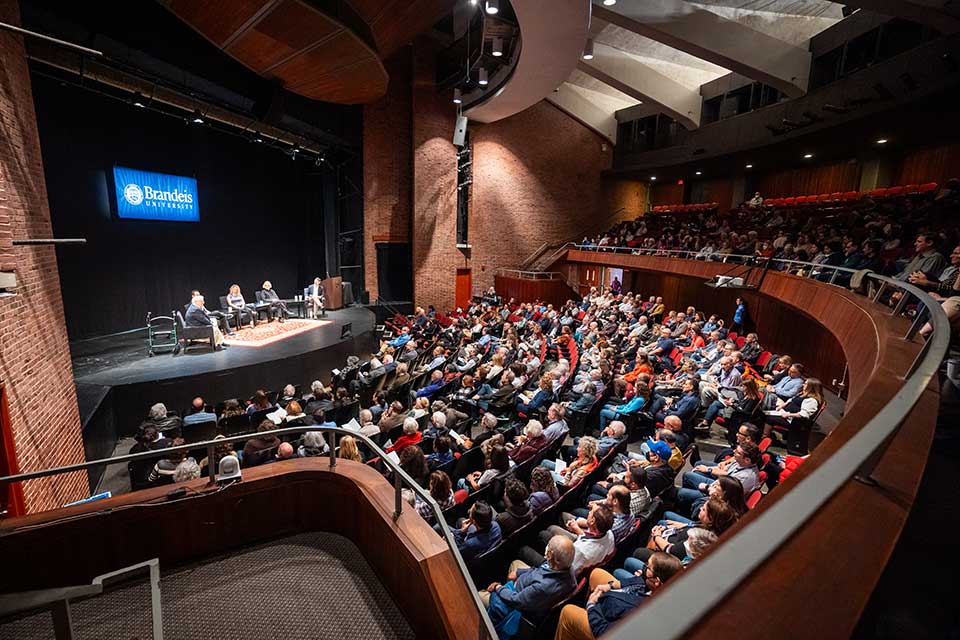
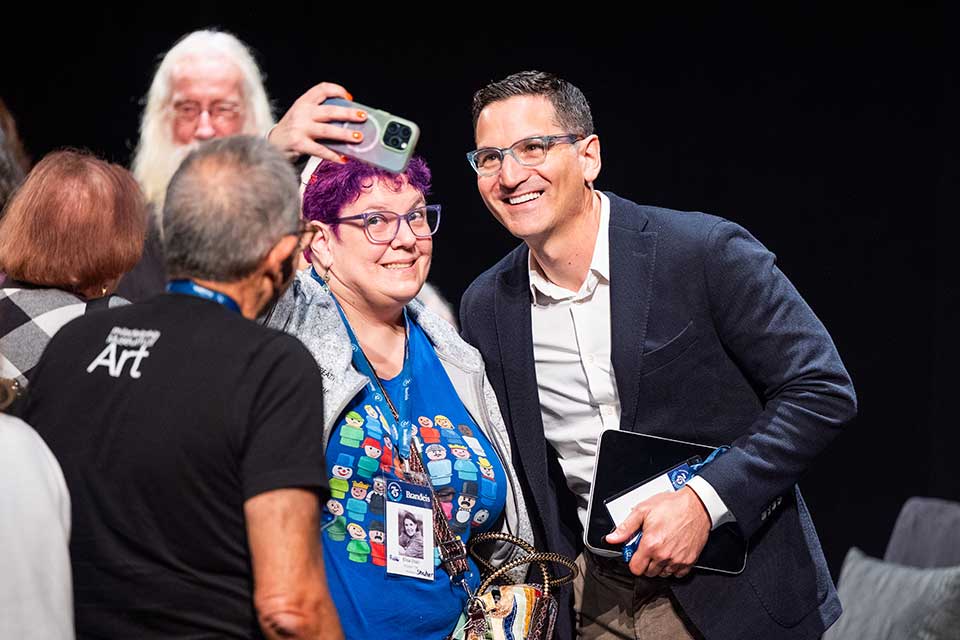
Personal experience can be used to help the underprivileged
When Cheryl Pegus ’84 was young, she witnessed her grandfather get very sick and realized that her family couldn’t afford his treatment. So, she decided to become a doctor. Now, she’s a distinguished leader in the healthcare profession, serving as managing director of Morgan Health Ventures and board advisor for Trulite Health.
One of the things that sets her apart is her dedication to serving the underserved.
For example, she said, only 5 percent of health research addresses women’s health and is almost entirely devoted to breast cancer. But heart disease is the leading cause of death in women, she said. Informed by her childhood experiences, Pegus wants to create change and bring equity to healthcare.
"For me, it’s really been a journey of making sure that in the rooms I’m privileged to be in, I represent the groups who aren’t there,” she said.
